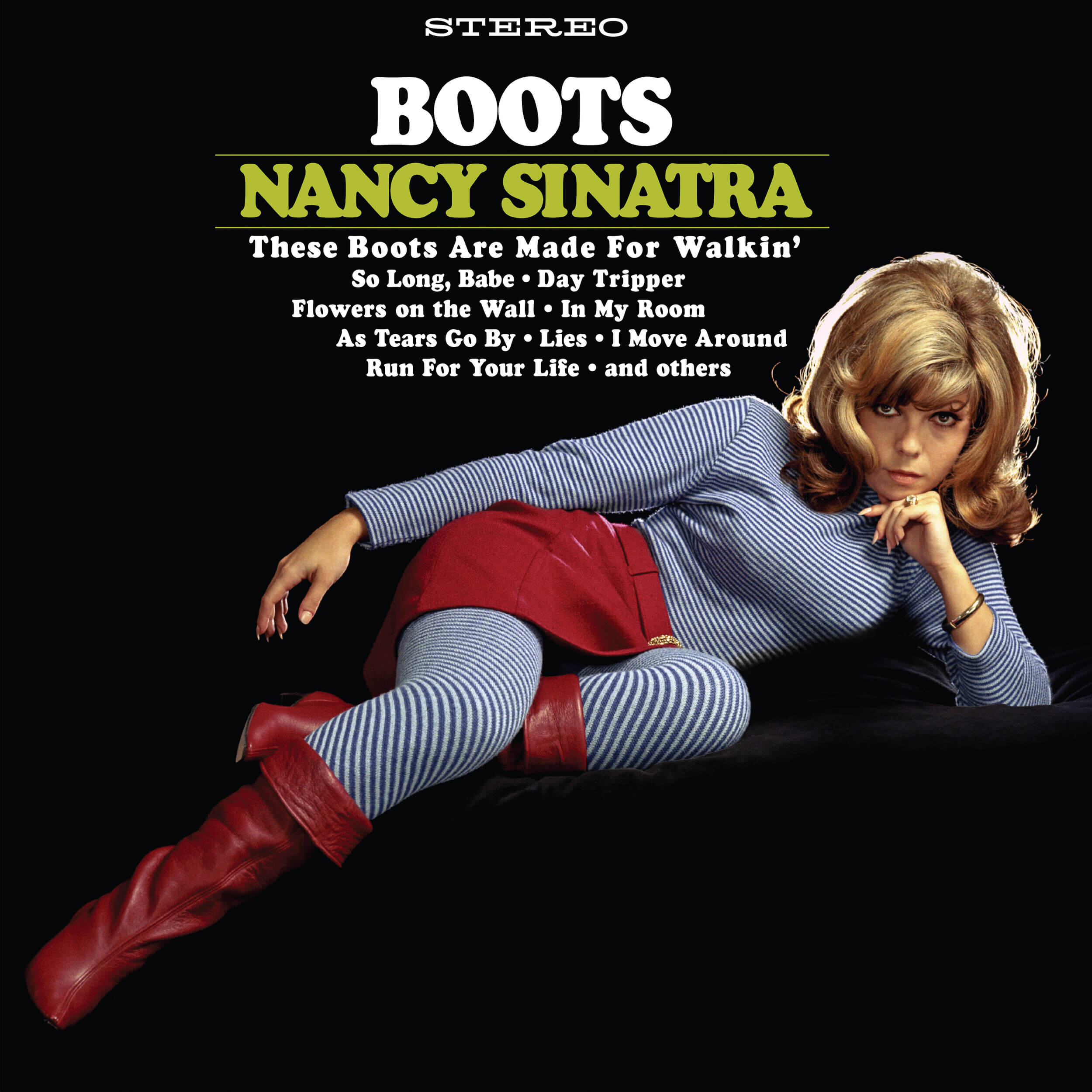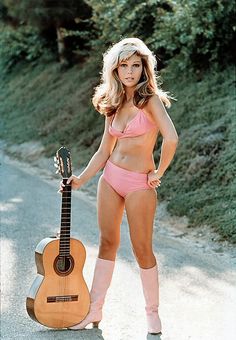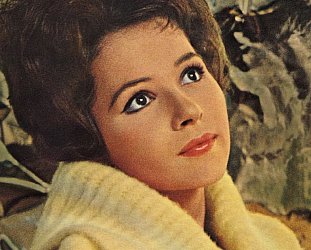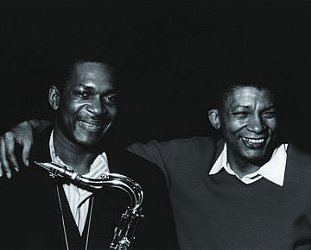Graham Reid | | 2 min read
.png)
There were three different instructions producer Lee Hazlewood gave to Nancy Sinatra when she went to sing his freshly written song These Boots Are Made For Walking.
Each was as good as the others.
First he told her to sing it “like a 14-year old girl in love with a 40-year old man”.
Sinatra didn't quite know what that meant so after the first take he suggested she sing it like a married woman, not a virgin anymore.
Then, according to some sources as mentioned in James Kaplan's biography of her father Frank Sinatra, The Chairman, he ordered the 25-year old Nancy to sing it “like a 16-year old girl who fucks truck drivers”.
She did and three weeks later her signature song and first hit was number one on the US charts. Subsequently it would pick up two Grammy nominations for her and one for arranger Billy Strange.
She was also given a sexy makeover with piled-up bouffant hair, miniskirts and high boots. (The template for Austin Powers' fembots?)
Inevitably there was the tie-in album, her debut Boots where Hazlewood – who was by that time a well-known and successful writer/producer and arranger – called on the Wrecking Crew.
 Pulled from the shelves at random for this on-going column, Boots stands up well.
Pulled from the shelves at random for this on-going column, Boots stands up well.
Given that few women singers wrote their own material – Jackie de Shannon being a notable exception, Carole King's solo career still some years away – Sinatra was obliged to cover other artists' material, as chosen by the astute Hazlewood who emphasised a kind of tougher edge.
With gender flips, Lennon's Run For Your Life (from the recently released Rubber Soul) and Daytripper – both with horns – push the idea of a self-assured young woman, Dylan's It Ain't Me Babe also suits the persona she was putting forward.
The Stones' As Tears Go By – given a gentle bossa shuffle – comes off as by a more mature woman than Marianne Faithfull's chaste, Elizabethan. It's not the finest thing here however.
But the dramatic In My Room (not the Beach Boys' song but the Italian song covered by the Walker Brothers the same year) has a Gothic gloom and If He'd Loved Me show another side of Sinatra: the woman hurt by love lost.
Hazlewood's originals I Move Around and So Long Babe (the latter a kind of inversion of It Ain't Me Babe with a veneer of desperation for fame on the part of the man leaving) reenforce her independence, despite the hurts.
 And although Lies (the Knickerbockers hit) and Flowers on the Wall (Statler Brothers) are make-weights they follow the coherent themes Hazlewood – who liked the idea of concept albums – brought together.
And although Lies (the Knickerbockers hit) and Flowers on the Wall (Statler Brothers) are make-weights they follow the coherent themes Hazlewood – who liked the idea of concept albums – brought together.
As a debut album for a woman coming out of the shadow of a famous father, Boots is a very sound announcement of a career which – with Hazlewood – would go on to greater and often darker things in their classic duets like Down From Dover, Some Velvet Morning and Summer Wine.
When lined up against album by her peers Dusty, Cilla, Lulu, Marianne and others at the time, Boots has a snap and assertion the others often lacked, although some of those artists had more range and expressive power.
However with Lee Hazlewood at the controls, Nancy Sinatra delivered a very convincing debut album and parlayed it into a career in music, television and a slightly more interesting film career (The Wild Angels biker flick by Roger Corman, with Peter Fonda) than the teenage beach party films she'd been known for.
Although Speedway with Elvis the year after Boots remains a footnote in both their careers.
.
You can hear this album (with two bonus tracks) at Spotify here
Elsewhere has a considerable amount about Lee Hazlewood's long career here
.
Elsewhere occasionally revisits albums -- classics sometimes, but more often oddities or overlooked albums by major artists -- and you can find a number of them starting here





post a comment